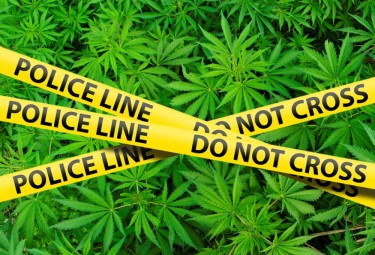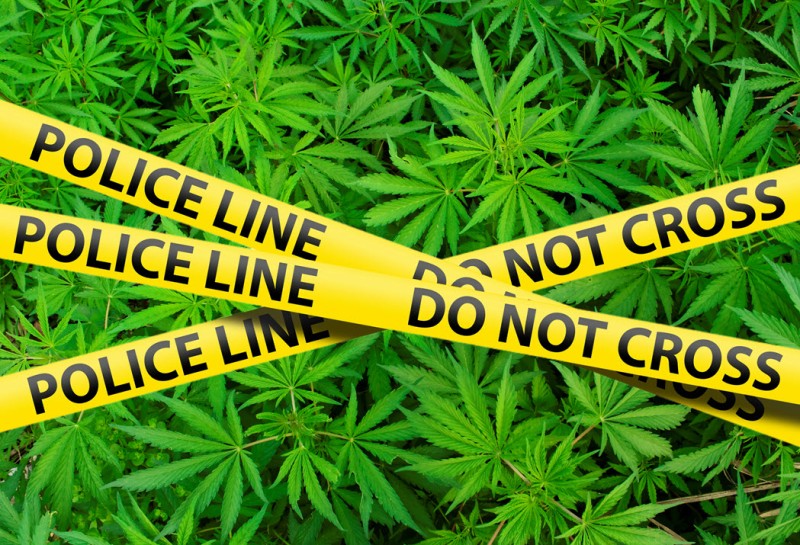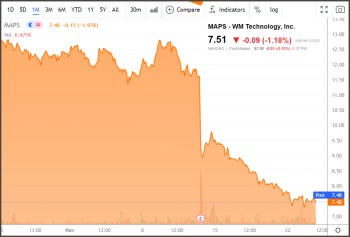
On the eve of the highly anticipated opening of Brooklyn's first legal adult-use store, state authorities in New York marked a significant milestone—the permanent closure of a long-standing illicit marijuana operation in the borough.
The legal action taken to permanently shut down Big Chief Smoke Shop, an unlicensed cannabis retailer situated in the Bay Ridge neighborhood of southern Brooklyn, is being hailed as a pivotal moment signifying New York's commitment to change, as stated by Governor Kathy Hochul in a Monday announcement.
Governor Hochul emphasized that closing down Big Chief, the ninth illegal operator targeted by the state, is a testament to their zero-tolerance stance towards illicit retailers who violate the law and undermine the state's leading adult-use cannabis industry.
While official estimates suggest a staggering number of illegal stores operating in New York City alone—ranging from 1,500 to as many as 8,000—Big Chief, a persistent offender, had been selling cannabis without a license for an extended period. Despite previous state interventions that led to temporary closures, the store would defiantly reopen.
Presently, the once-operational Big Chief is sealed behind steel roll gates, prominently adorned with a court order, according to reports from the New York Post.
In addition to the closure, Attorney General Letitia James is pursuing legal action to impose substantial fines, totaling millions of dollars, against both the operators of the store and its landlord, as outlined in court records.
Crucial Step Towards Regulatory Integrity
In a resounding declaration of commitment to regulatory integrity, Governor Kathy Hochul's announcement heralds the permanent closure of Big Chief Smoke Shop as a pivotal stride forward in New York's cannabis landscape. This decisive action sends a clear message that the state is unwavering in its dedication to enforcing stringent regulations, particularly as it anticipates the grand opening of Brooklyn's inaugural legal adult-use store.
Governor Hochul emphasized that shutting down Big Chief, the ninth illegal operator targeted by the state, is not merely an isolated event but a crucial step toward establishing and maintaining the integrity of the burgeoning legal cannabis industry in New York. The closure reflects the state's zero-tolerance stance towards illicit retailers that not only violate the law but also pose a potential threat to the credibility and success of the adult-use cannabis sector.
As New York takes this bold step, the closure of Big Chief Smoke Shop stands as a symbol of the state's commitment to shaping a regulated and responsible cannabis market. The move signals to both the industry and the public that New York is actively working to create a framework where legal operators can thrive, and consumers can engage with cannabis products in a safe and regulated environment.
Battling Illicit Operations in New York City
Amid the anticipation surrounding the imminent opening of Brooklyn's inaugural legal adult-use store, the closure of Big Chief Smoke Shop shines a spotlight on the enduring challenges posed by illicit cannabis operations in the heart of New York City. Official estimates, ranging from 1,500 to a staggering 8,000 illegal stores, paint a stark picture of the uphill battle the state faces in curbing unauthorized cannabis activities within its boundaries.
Big Chief, the ninth illegal operator to be targeted by state authorities, serves as a microcosm of the broader issue—a persistent and resilient offender in the face of regulatory measures. Despite previous interventions by state officials leading to temporary closures, the smoke shop consistently found ways to reopen, underscoring the tenacity of illicit operators and the difficulties in stamping out illegal cannabis enterprises.
The closure of Big Chief Smoke Shop prompts a closer examination of the root causes behind the proliferation of unlicensed stores. It highlights the ongoing struggle to maintain regulatory control in a city grappling with a complex and extensive illicit cannabis market. As New York endeavors to establish a regulated cannabis landscape, the case of Big Chief raises questions about the efficacy of existing measures and the need for sustained, adaptive efforts to eradicate illegal cannabis operations.
In the broader context, Big Chief's persistent operation underscores the imperative to create a framework where legal cannabis businesses can thrive while sending a resolute message that the state remains committed to overcoming the challenges posed by illicit operators. As New York strives to bring order to its cannabis landscape, the closure of Big Chief stands as a poignant reminder of the ongoing battle against persistent offenders, reinforcing the state's determination to safeguard the integrity of the burgeoning legal cannabis industry.
Fines and Consequences as Legal Consequences
In the aftermath of the decisive closure of Big Chief Smoke Shop, the legal landscape unfolds with Attorney General Letitia James at the forefront, seeking substantial fines totaling millions of dollars. This legal pursuit extends beyond merely shutting down the illicit cannabis retailer; it aims to impose significant financial consequences on both the operators of Big Chief and its landlord.
Court records reveal that Attorney General James is navigating a path toward financial accountability, reflecting the state's unwavering commitment to deter illicit cannabis activities through punitive measures. The sought-after fines serve as a deterrent not only to Big Chief but also as a broader warning to illegal operators, emphasizing the severe consequences they may face for flouting the law.
The legal actions underscore a strategic shift in the state's approach, moving beyond closures to imposing financial penalties that resonate with the operators and stakeholders involved in illicit operations. This signals a commitment to not only disrupt current illegal activities but also to create a financial disincentive for potential future offenders, contributing to the overarching goal of establishing a regulated and responsible cannabis industry.
As Attorney General Letitia James pursues these substantial fines, the legal ramifications extend beyond the immediate closure of Big Chief Smoke Shop. They mark a proactive stance by the state, leveraging the legal system to address the financial underpinnings of illicit cannabis operations, thereby reinforcing the gravity of adherence to regulations in New York's evolving cannabis landscape.
Bottom Line
The closure of Big Chief Smoke Shop represents a transformative moment for New York's cannabis landscape, signaling the state's unwavering commitment to regulatory integrity and the eradication of illicit operations. Governor Kathy Hochul's decisive actions and the pursuit of substantial fines by Attorney General Letitia James underscore a strategic shift towards not only closing illegal establishments but also imposing financial consequences. The persistent challenges highlighted in battling illicit operations in New York City emphasize the ongoing complexities that demand adaptive strategies. As the state strives to bring order to its cannabis landscape, the closure of Big Chief stands as a resolute step towards safeguarding the integrity of the burgeoning legal cannabis industry, paving the way for a regulated and responsible future in the state.







